We, the Leaders of the Group of Seven (G7), met on 12 December, to reflect on progress of our cooperation under Germany’s Presidency to jointly address global challenges at a time of severe geopolitical crisis and critical moment for the world economy. We were joined by Ukraine’s President Volodymyr Zelenskyy. This year in the face of Russia’s illegal, unjustifiable and unprovoked war of aggression against Ukraine, we stood more united than ever, together with Ukraine and in unwavering commitment to our shared values, the rules-based multilateral order and international cooperation.
Today, we reaffirm our unwavering support for and solidarity with Ukraine in the face of ongoing Russian war of aggression for as long as it takes. We condemn Russia’s continuous inhumane and brutal attacks targeting critical infrastructure, in particular energy and water facilities, and cities across Ukraine, and recall that indiscriminate attacks and attacks on the civilian population or civilian objects, constitute a war crime. We also condemn those who are facilitating Putin’s illegal war. We are determined to help Ukraine repair, restore and defend its critical energy and water infrastructure. We will help Ukraine in meeting its winter preparedness needs, will continue to support Ukraine’s civilian resilience, and will further enhance our efforts on this during the international conference to be held in Paris on 13 December. We are determined that Russia will ultimately need to pay for the restoration of critical infrastructure damaged or destroyed through its brutal war. There can be no impunity for war crimes and other atrocities. We will hold President Putin and those responsible to account in accordance with international law. We reiterate that Russia’s irresponsible nuclear rhetoric is unacceptable and that any use of chemical, biological, or nuclear weapons would be met with severe consequences.
Building on our commitments so far, we will continue to galvanise international support to help address Ukraine’s urgent short-term financing needs. We ask our Finance Ministers to convene shortly to discuss a joint approach for coordinated budget support in 2023. We affirm that the International Monetary Fund (IMF) should be central to this effort.
We firmly support efforts to secure Ukraine’s immediate financial stability and its recovery and reconstruction towards a sustainable, prosperous and democratic future, in line with its European path. We will build on the outcomes of the International Expert Conference on the Recovery, Reconstruction and Modernisation of Ukraine held on 25 October in Berlin, as well as at the Ukraine Recovery Conference on 21-22 June 2023 in London. In particular, with a view to supporting Ukraine’s repair, recovery and reconstruction, together with Ukraine and our international partners and in close coordination with relevant International Organisations and International Financial Institutions, we will establish a multi-agency Donor Coordination Platform. Through this platform, we will coordinate existing mechanisms to provide ongoing short- and long-term support – with particular responsibility of the Finance Track for short-term financial support –, coordinate further international funding and expertise, and encourage Ukraine’s reform agenda as well as private sector led growth. We will also set up a Secretariat for the Platform. We will each designate a senior government representative to oversee the set-up of the platform and ongoing coordination efforts, and ask them to convene as soon as possible in January 2023.
With a view to a viable post-war peace settlement, we remain ready to reach arrangements together with Ukraine and interested countries and institutions on sustained security and other commitments to help Ukraine defend itself, secure its free and democratic future, and deter future Russian aggression in line with its rights enshrined in the Charter of the United Nations (UN Charter).
We will continue to coordinate efforts to meet Ukraine’s urgent requirements for military and defense equipment with an immediate focus on providing Ukraine with air defense systems and capabilities.
We also reiterate our strong condemnation of Russia’s continued seizure and militarisation of Ukraine’s Zaporizhzhya Nuclear Power Plant, the abduction and reported abuse of Ukrainian personnel, and the willful destabilisation of its operations. We support the International Atomic Energy Agency’s (IAEA) efforts to establish a Safety and Security Zone.
Russia’s war of aggression must end. To date, we have not seen evidence that Russia is committed to sustainable peace efforts. Russia can end this war immediately by ceasing its attacks against Ukraine and completely and unconditionally withdrawing its forces from the territory of Ukraine. We welcome and support President Zelenskyy’s initiative for a just peace.
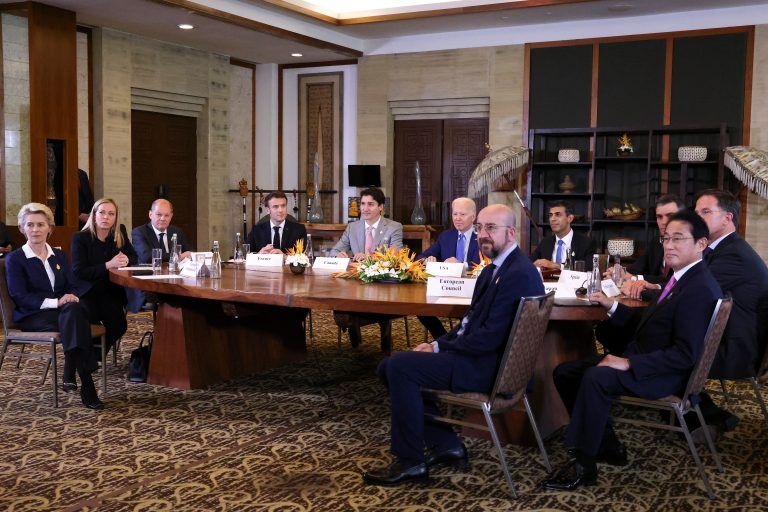
Joint statement of NATO and G7 Leaders on the margins of the G20 Summit in Bali
|
We remain committed to our unprecedented coordinated sanctions measures in response to Russia’s war of aggression. We will maintain and intensify economic pressure on Russia and those who evade and undermine our restrictive measures. We will continue to shield vulnerable countries that are severely impacted by the repercussions of Russia’s war of aggression and its weaponisation of energy and food.
We reaffirm our intention to phase out Russian-origin crude oil and petroleum products from our domestic markets. During the week of 5 December 2022, the price cap on seaborne Russian crude oil entered into force in our respective jurisdictions, delivering on our commitment to limit Russia from profiting from its war of aggression against Ukraine, to support stability in global energy markets and to minimise negative economic spillovers of Russia’s war of aggression, especially on low- and middle-income countries. We encourage third countries that seek to import seaborne Russian-origin crude oil and petroleum products to leverage the price cap. We reiterate our decision that the price cap on Russian origin petroleum products will enter into force on 5 February 2023.
Russia’s war in Ukraine is exacerbating existing fragilities in the global economy, with direct impacts on the cost of living of people in our own countries, and on the world’s most vulnerable. We will continue to use all available policy tools to maintain global financial, macroeconomic and price stability and long-term fiscal sustainability, while providing targeted support to those most in need and working collaboratively to strengthen our collective economic security to external shocks and wider risks. We will make public investments and structural reforms to promote long term growth. We will further coordinate to respond to the urgent needs of most vulnerable countries and will encourage private investment in developing and emerging markets as a key enabler of sustainable economic pathways.
We will keep up our ambition to address global food insecurity, including through the Global Alliance for Food Security (GAFS). We will keep supporting the delivery of grain and fertilisers to vulnerable countries in need and welcome the recent operations led by the World Food Programme (WFP) on this front. We welcome the extension of the Black Sea Grain Initiative (BSGI) alongside further efforts to bring Ukrainian food to the world, namely the European Union’s Solidarity Lanes and the Grain from Ukraine Initiative.
Reaffirming our steadfast commitment to implement the Paris Agreement and the outcomes of COP26 and COP27, we commit to urgent, ambitious, and inclusive climate action in this decade to limit global warming to 1.5°C above pre-industrial levels. We reaffirm our commitment to reach net-zero emissions no later than 2050. To that end, and building on our statement adopted in June in Elmau, we endorse the Climate Club’s terms of reference as established by the Climate Club Task Force and hereby establish an open and cooperative international Climate Club. Focusing in particular on the decarbonisation of industries, we will thereby contribute to unlocking green growth. We invite international partners to join the Climate Club and to participate in the further elaboration of its concept and structure. In doing so, we will continue working closely together with relevant International Organisations and stakeholders. We ask the Organisation for Economic Cooperation and Development (OECD), in tandem with the International Energy Agency (IEA), to host an interim secretariat working together with other International Organisations.

EU to invest €13.5 billion in research and innovation for 2023-2024
|
Recalling our commitment to halt and reverse biodiversity loss by 2030, we will work intensively towards a successful outcome at Convention of Biological Diversity (CBD) COP15, in particular the adoption of an ambitious and effective global biodiversity framework, with clear and measurable targets and its prompt and swift implementation. In this regard we are committed to mobilising resources from all sources and to substantially increasing our national and international funding for nature by 2025 to support the implementation of an ambitious global framework. We encourage countries beyond the G7 to join us in this endeavor.
Accelerating our contributions to the Partnership for Global Infrastructure and Investment (PGII) to make our global partners a better offer on sustainable, inclusive, climate-resilient, and quality infrastructure investment, we welcome the progress on the Just Energy Transitions Partnerships (JETP) with South Africa and Indonesia as flagship projects for multilateral cooperation, just energy transition and sustainable investment and look forward to swiftly concluding negotiations on a JETP with Vietnam, as well as to making further progress with India and Senegal. We will intensify our cooperation within a PGII working group to deliver on our joint ambition to mobilise up to 600 billion dollars by 2027, and on JETPs, we will coordinate through the JETP working group.
Reaffirming our full commitment to realise gender equality and to consistently mainstream gender equality into all policy areas, we welcome the key recommendations by the Gender Equality Advisory Council (GEAC) and look forward to receiving the GEAC’s full report by the end of the year. We thank this year’s GEAC for its important work, reiterate our intention to convene the GEAC as a standing feature of all G7 Presidencies, and look forward to further strengthening it.
This year, we have achieved progress to improve the global health architecture with the World Health Organization (WHO) at its core, our capacity to prevent, prepare for and respond to future global health emergencies and to achieve universal health coverage, especially through the G7 Pact for Pandemic Readiness endorsed in Elmau. We welcome the successful Seventh Replenishment of the Global Fund for AIDS, Tuberculosis and Malaria (Global Fund). We will step up our efforts on training and qualifying health workforce as well as strengthening surveillance capacities to detect outbreaks and variants as early as possible by integrating the One Health approach. We will continue to support science to develop safe and effective vaccines, therapeutics, and diagnostics.
Under the German Presidency, we, the G7, together with other international partners, have demonstrated our resolve to jointly addressing both major systemic challenges and immediate crises of our time. Our commitments and actions pave the way for progress towards an equitable world. As we look to the 2023 G7 Summit in Hiroshima under the Japanese Presidency, and in our support to the Indian G20 Presidency, we stand strong, united and absolutely committed to rebuilding a peaceful, prosperous and sustainable future for all.
Source: Press release – EU Council

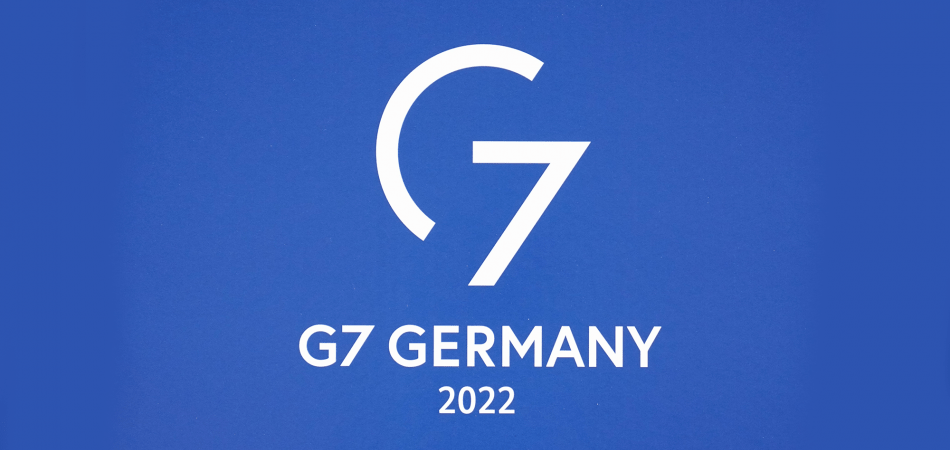
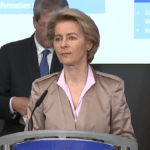
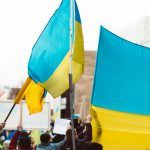

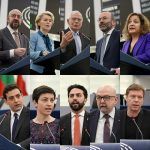
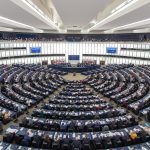
Leave a Reply